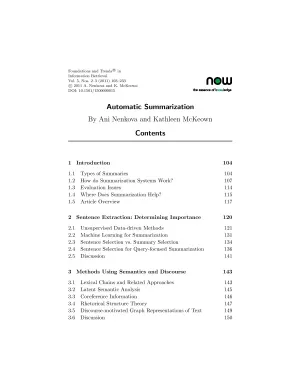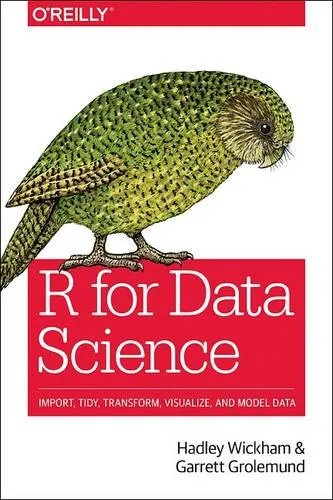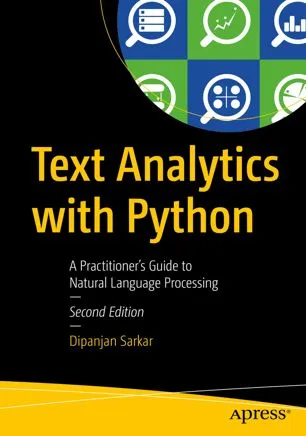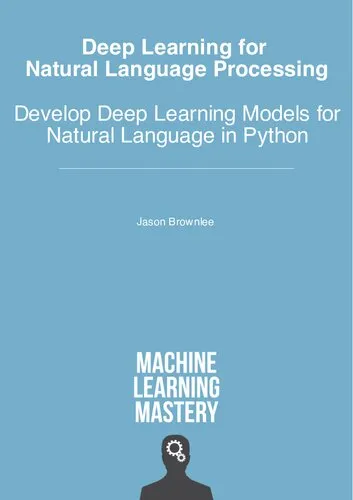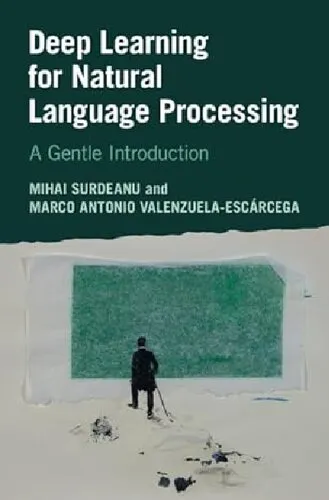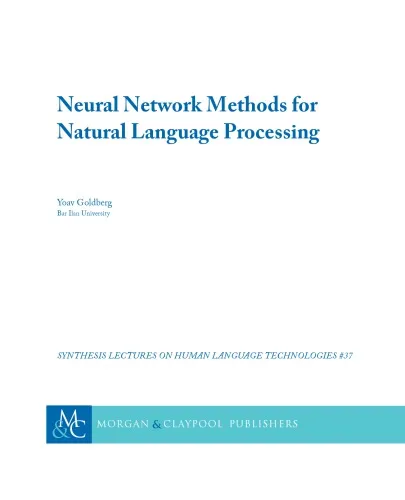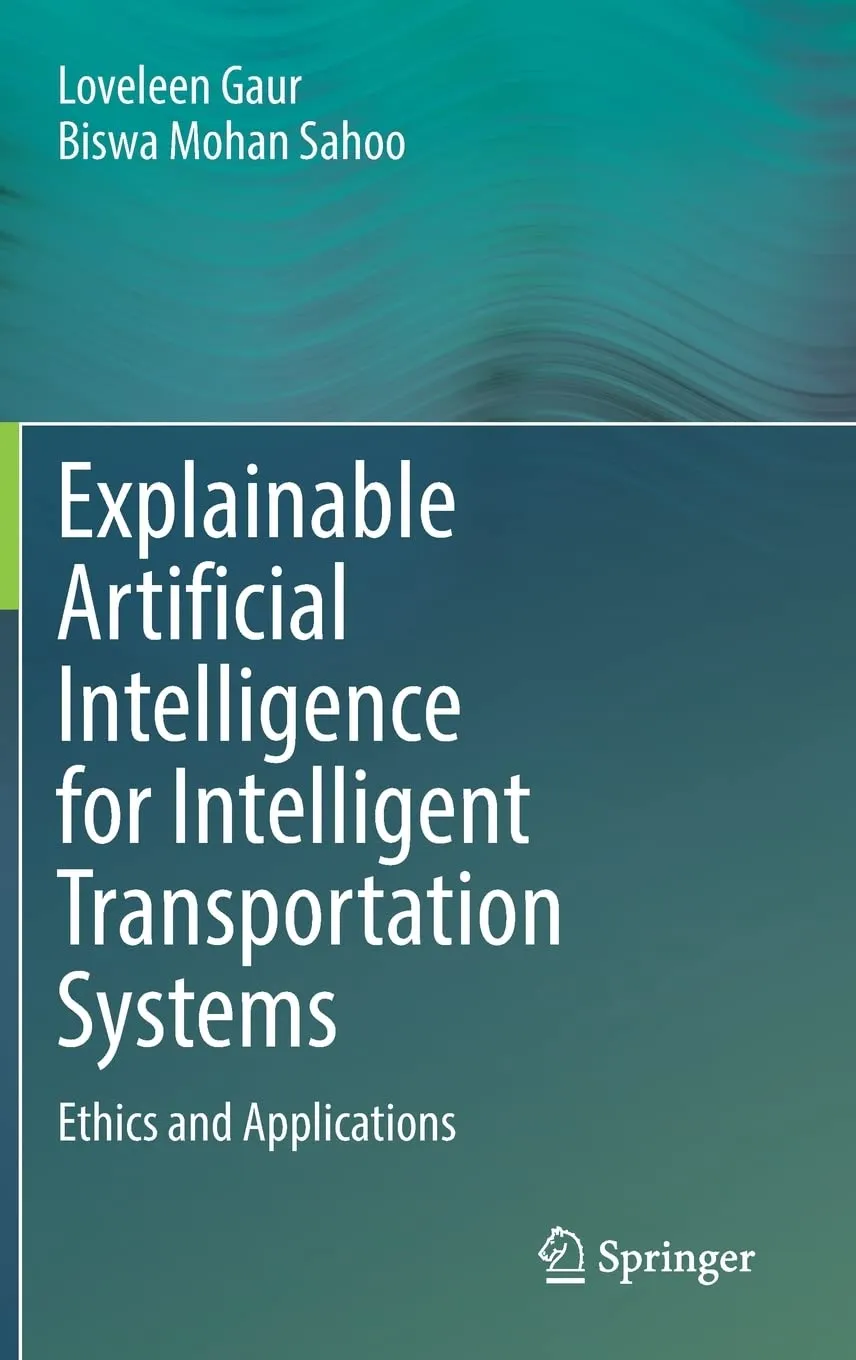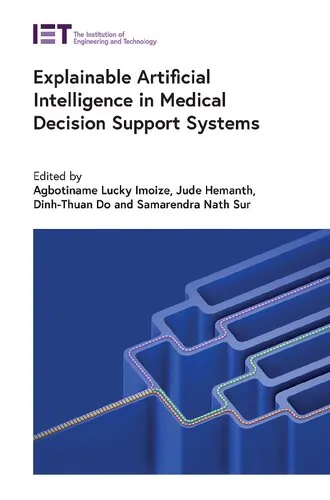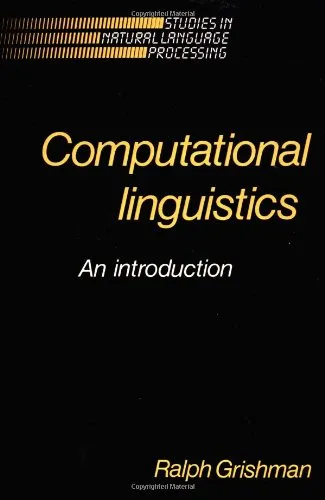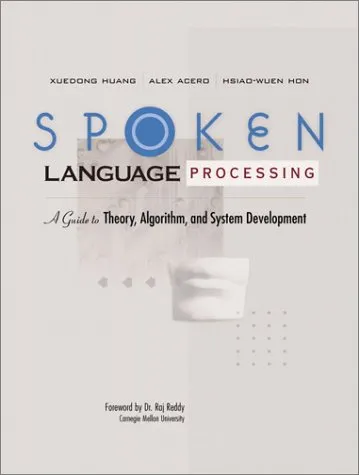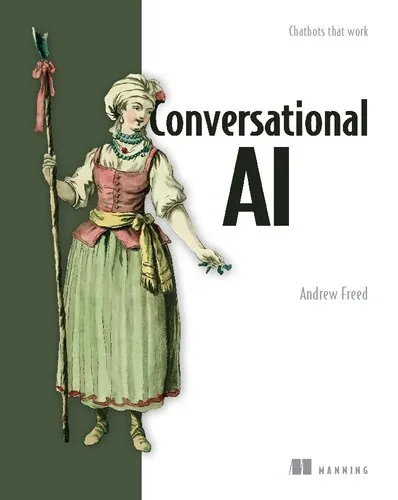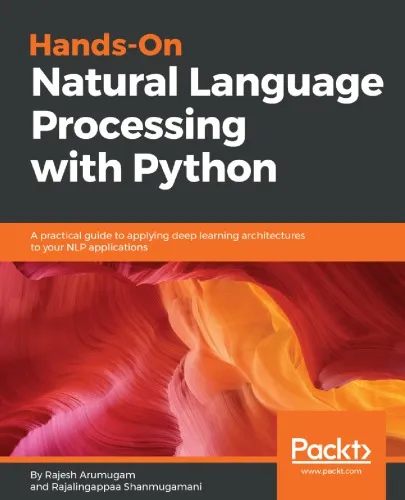Automatic Summarization
4.0
Reviews from our users

You Can Ask your questions from this book's AI after Login
Each download or ask from book AI costs 2 points. To earn more free points, please visit the Points Guide Page and complete some valuable actions.Related Refrences:
Welcome to Automatic Summarization, your comprehensive guide to the theory, methodologies, and practical applications of automatic text summarization. Authored by Nenkova A. and McKeown K., this book serves as a vital resource for researchers, developers, and anyone fascinated by the intersection of computational linguistics and artificial intelligence. In this introduction, we will provide a detailed overview of the book, highlight its key takeaways, share some of its most insightful quotes, and discuss why this book is essential in today’s world.
Detailed Summary of the Book
At its core, Automatic Summarization explores the science of how machines can distill relevant information from vast quantities of text to create summaries that are both readable and informative. The book is structured to take readers on a journey through foundational concepts, algorithms, and the state-of-the-art advancements in summarization. By delving into linguistic theories and computational approaches, the authors bridge human cognitive processes and machine capabilities.
Early chapters provide a thorough introduction to text summarization, distinguishing between abstractive and extractive methods. The authors examine the challenges of summarization systems, from identifying relevant content to managing redundancy and coherence in generated summaries. As readers progress through the book, they will encounter detailed discussions about techniques such as sentence scoring, regression models, topic modeling, and neural networks, all of which enhance the quality of summaries.
The book also examines the evaluation frameworks used to measure summarization performance—ranging from ROUGE scores to human-based assessments of fluency and informativeness. The authors offer real-world case studies and applications, demonstrating how summarization reshapes domains like journalism, customer service, and legal document analysis. By the final chapters, readers gain insight into cutting-edge research directions, paving the way for future breakthroughs in this evolving field.
Key Takeaways
- Understand the core principles of automatic summarization and its role in artificial intelligence.
- Learn the essential differences between abstractive and extractive approaches to summarization.
- Explore the computational and linguistic challenges involved in creating accurate and concise summaries.
- Gain practical knowledge of various summarization algorithms, including traditional statistical methods and modern neural approaches.
- Discover the importance of evaluation metrics and how they are applied to assess system performance.
- Find real-world uses of summarization, from business applications to social media analysis and academic research.
- Be inspired to think critically about how advances in summarization can address global challenges, such as information overload.
Famous Quotes from the Book
"A good summary does not just condense content; it extracts and restructures meaning in a way that maximizes utility for the intended audience."
"The challenge of summarization is not just about reducing information but about choosing the right information to keep."
"In an age of overwhelming information, the ability to summarize effectively is no longer optional—it is essential."
Why This Book Matters
In an era defined by the digital explosion of information, the need for quick and efficient access to knowledge has never been greater. Social media, news platforms, research databases, and other sources generate massive streams of data every second, leaving individuals and organizations grappling with information overload. Automatic Summarization addresses this challenge directly by equipping machines with the tools needed to sift through vast quantities of text and deliver concise insights.
The importance of this book extends beyond its technical merits. It is a crucial resource for understanding how automation is reshaping how humans interact with text, offering a clear vision of the potential and limitations of current technologies. Whether you are a student, researcher, or industry practitioner, this book inspires creative thinking and promotes ethical practices in the development of summarization systems.
By blending theory and practice, Automatic Summarization not only educates but also empowers readers to contribute to technological solutions that enhance productivity and global communication. It is not only a guide for building summarization systems but also a call to action in addressing the vast demands of our information-centric world.
Free Direct Download
You Can Download this book after Login
Accessing books through legal platforms and public libraries not only supports the rights of authors and publishers but also contributes to the sustainability of reading culture. Before downloading, please take a moment to consider these options.
Find this book on other platforms:
WorldCat helps you find books in libraries worldwide.
See ratings, reviews, and discussions on Goodreads.
Find and buy rare or used books on AbeBooks.
1323
بازدید4.0
امتیاز0
نظر98%
رضایتReviews:
4.0
Based on 0 users review
Questions & Answers
Ask questions about this book or help others by answering
No questions yet. Be the first to ask!
